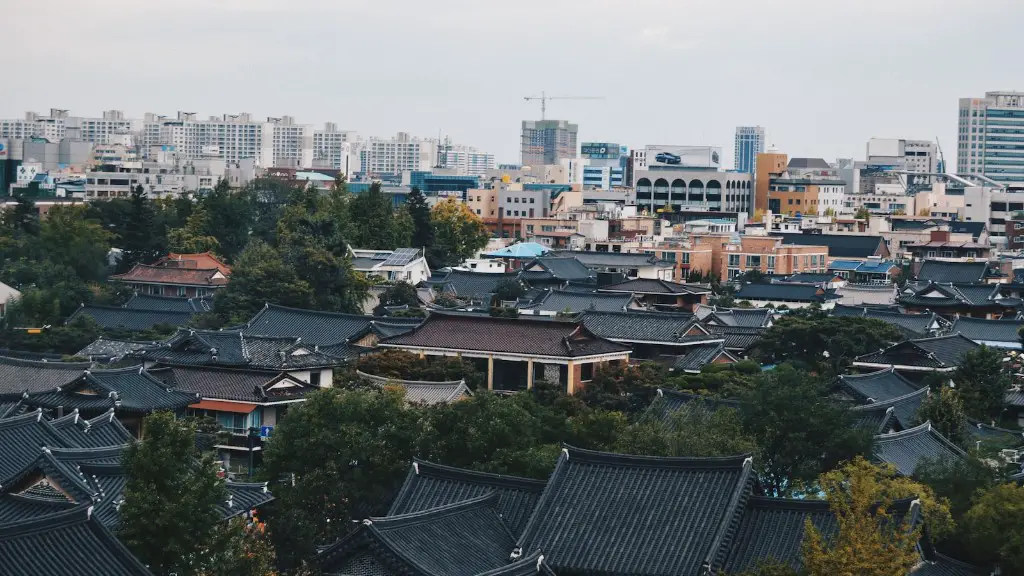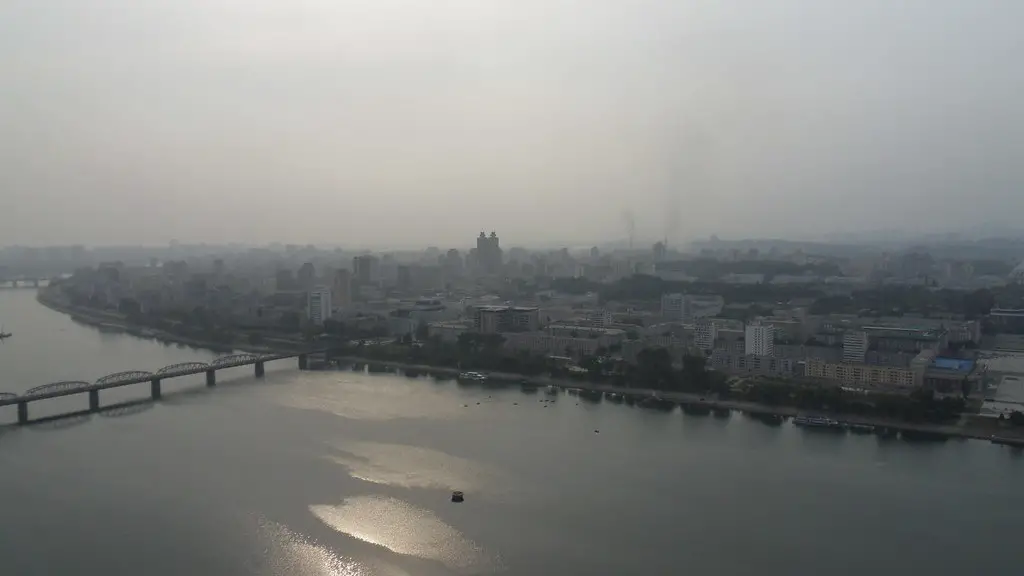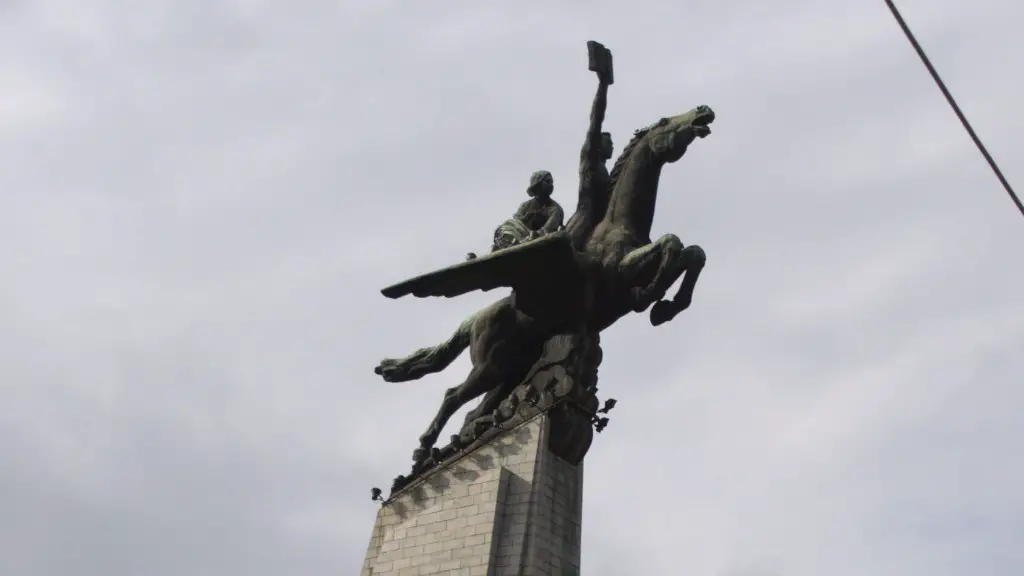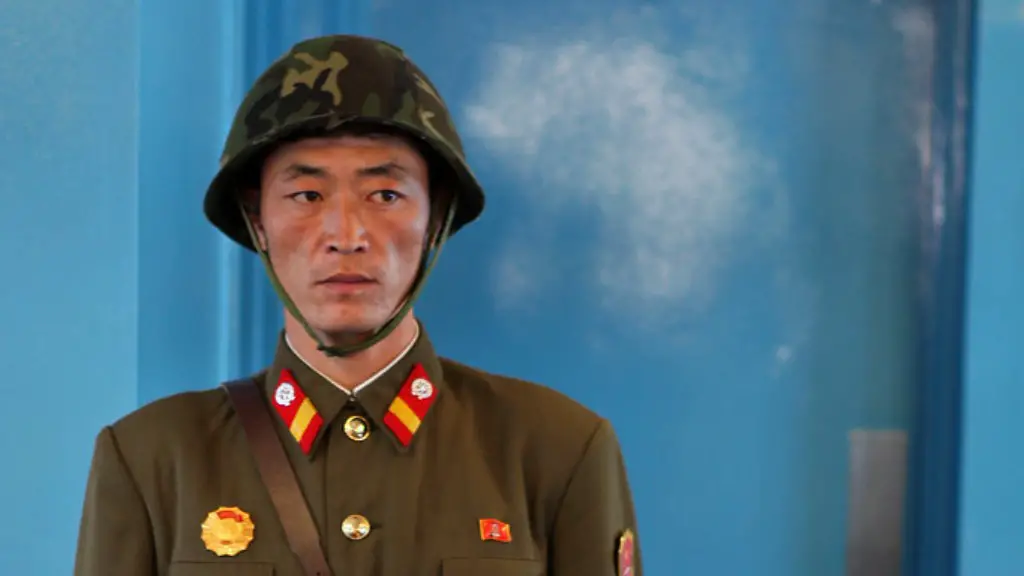The harsh and often gruesome nature of executions in North Korea are a sad reality. After a verdict of guilty is handed down, most prisoners in North Korean prisons do not live to tell their tale. In North Korea, executions are predominantly used as a way to quell dissent and punish even minor infractions, ranging from political offenses to petty theft. Under the regime of Kim Jong-Un, the totalitarian leader of North Korea, executions have become even more frequent and arbitrary.
The Noth Korean regime uses a variety of methods to execute prisoners, including shooting, hanging, and missiles. According to some sources, firing squads are the most common form of execution. This method of execution typically entails a line of soldiers, each with a rifle loaded with a single bullet. Some prisoners are blindfolded and kneel in front of the squad when the execution is carried out. The regime also often uses public processing and executions in order to discourage dissent.
The public nature of some of these executions allows for the state to act as a sort of deterrent, but it can also be used to instill fear in citizens. Furthermore, such public executions can lead to death being seen as a normal punishment and thought of as an appropriate consequence for misdemeanors. This kind of fear-mongering often occurs in authoritarian regimes and is particularly notable in North Korea.
The lack of transparency in North Korea makes it difficult to fully appreciate the scope of the regime’s use of the death penalty. However, reports of human rights organizations indicate that public executions are particularly common in North Korea. Reports also suggest that Kim Jong-Un is willing to go to extreme lengths in order to maintain control of the population. These reports are especially worrying in light of Kim Jong-Un’s recent push to significantly increase the number of executions.
The use of the death penalty has been condemned internationally. Many countries and international organizations have publicly expressed their concerns over the lack of due process and reports of arbitrary executions. Such organizations have called on North Korea to halt its executions and to end the widespread use of the death penalty.
Unfortunately, the international community has so far been unable to persuade the regime to end its brutality. As a result, the number of executions by the North Korean regime continues to rise, and the victims of these executions remain anonymous. This stark reality showcases the devastating consequences of living under authoritarian rule. In order to truly end the cruel and inhumane practice of executions in North Korea, more must be done to pressure the regime to end this harrowing practice.
International Repercussions
Internationally, nations are increasingly responding to North Korea’s executions by issuing sanctions and increasing diplomatic pressure on the regime. Such pressure has included calling for strong international condemnation of the regime, threatening economic sanctions, and increased diplomatic dialogue aimed at passing resolutions to compel North Korea to end executions. Nations that are particularly concerned about North Korea’s executions and human rights record include the United States, China, and the United Nations.
In 2017, the United Nations Human Rights Council passed a resolution condemning North Korea and demanding an end to its human rights abuses, including executions. The resolution passed with a large majority, despite intense resistance from North Korea’s allies. On the other hand, the US and China have both expressed strong condemnation of North Korea’s human rights abuses. In particular, the US has issued financial sanctions against individuals and companies linked to North Korea’s human rights abuses.
Despite the international pressure and condemnation, the North Korean regime has so far proven that it is reluctant to change its ways. It remains to be seen whether or not the international community will be able to effectively pressure the regime to end its human rights abuses. In the meantime, North Korea’s executions continue unabated.
North Korea’s Cult Of Personality
The North Korean regime is notorious for its cult of personality surrounding its leader, Kim Jong-Un. This cult of personality is arguably the most visible and resilient element of the regime’s rule. Through a mixture of propaganda and censorship, the regime has been able to effectively brainwash its citizens into having a largely favorable view of the leader. Reports suggest that these measures are especially effective in rural areas, where access to media is more limited and the regime can more easily spread its message.
The cult of personality is used to keep the population in line, to render dissenters ineffective, and most importantly, as an excuse to execute dissidents and political prisoners. Through this network of propaganda, Kim Jong-Un is able to cast dissidents and critics as traitors to the state and label their actions as acts of treason. As a result, North Korea is able to arbitrarily punish dissenters and execute them without any kind of due process.
The cult of personality is seen as the cornerstone of North Korea’s authoritarian rule. This tactic allows the regime to control its citizens, suppress any form of dissent, and expand its power at whim. Furthermore, it serves as an effective way for North Korea to maintain a hierarchical and oppressive system of government.
North Korean Propaganda
At the core of North Korea’s cult of personality is its propaganda machine. Another key element is the way the regime is able to control the flow of information to its citizens. All forms of media and information outlets are either heavily regulated or completely censored by the regime. Furthermore, the regime is particularly adept at disseminating its own messages, creating a narrative that is favorable to its own interests.
The regime also relies heavily on its domestic media outlets to spread its message. State-run media outlets are the primary source of news and information for most North Koreans. Furthermore, they are largely under the control of the regime, which gives the government the ability to emphasize certain points and minimize others. As a result, North Koreans are more likely to possess a view of the world that is favorable to the regime.
The regime also relies on propaganda to paint dissenters and critics of the regime as enemies of the state. This propagandistic approach enables the regime to criminalize any form of dissent and label critics as traitors. This tactic has been used to silence dissenters and to discredit critics of the regime, resulting in a climate of fear that is used to legitimize the regime’s brutal and arbitrary executions.
North Korean Defectors
North Korea’s executions, as well as its other human rights abuses, have resulted in a steady stream of defectors fleeing the regime. Thousands of citizens have fled to neighboring countries such as South Korea and China in search of greater freedom and safety. These defectors are often those who have been persecuted for their political views, or those who have had their rights violated by the regime in other ways.
The journey to freedom is not easy for North Korean defectors. In many cases, defectors must face a myriad of challenges and risks in order to reach safety. Many defectors travel through dangerous terrain and face intense scrutiny from both North and South Korean authorities. Furthermore, they may face hostility from those who are still loyal to the regime in North Korea.
Despite the inherent risks, many North Korean defectors are willing to take the risk in order to escape the oppressive regime. For many, this journey is an act of courage and defiance against a regime that denies them the right to basic freedoms and human rights. The stories of these defectors provide a glimpse into the dire reality of living in North Korea and the lengths some will go to escape it.
North Korean Sanctions
The international community has taken notice of North Korea’s human rights abuses, particularly its use of executions as a tool to silence dissent. In response, many nations have imposed economic sanctions on North Korea in order to pressure the regime to change its ways. Such sanctions have included restrictions on financial transactions, limits on oil imports, and the freezing of certain assets.
The effectiveness of these sanctions is debatable, as the regime has proven largely immune to economic pressure. Additionally, the regime has been able to sustain its rule by relying on its network of international allies and its ability to ignore international condemnation. Nevertheless, the sanctions have put a strain on North Korea’s economy, forcing the regime to reconsider its human rights policies.
Overall, the sanctions have had a mixed impact on North Korea. On one hand, they have hindered the regime’s ability to finance its operations and provide economic opportunities for its citizens. On the other hand, they have put a strain on the people of North Korea, as the regime has used the sanctions as an excuse to further oppress its citizens.
North Korean Support
Despite the international condemnation and economic sanctions, North Korea still maintains a wide network of supporters. North Korea’s allies often attempt to shield the regime from criticism by downplaying its human rights abuses and making excuses for its actions. Such allies typically defend the regime by arguing that North Korea is merely reacting to external pressures. Other times, there are accusations that North Korea’s human rights abuses are exaggerated by the international community.
The regime also benefits from a sense of solidarity among its supporters. This solidarity is often based on shared ideologies and an us-vs-them mentality. Furthermore, some supporters of the regime see Kim Jong-Un as a powerful leader who is immune to international pressures. This sense of solidarity has enabled the regime to maintain its grip on power and sustain its rule.
North Korea’s supporters also often provide the regime with economic aid and supplies. This aid is often in the form of food, fuel, and other resources that are desperately needed in North Korea. Such aid provides the regime with the resources it needs to sustain its rule and prevent the population from revolting. It also gives the regime the resources it needs to finance its military, as well as its weapons development program.
North Korea’s Future
The future of North Korea remains uncertain. The regime’s use of executions and human rights abuses is unlikely to change, as the regime is unlikely to succumb to international pressure. The international community must therefore take a more proactive approach to end the regime’s brutality. This could include a concerted effort to strengthen diplomatic ties with North Korea, and to work towards establishing a peace framework that will serve as an incentive for the regime to end its human rights abuses.
North Korea is also facing a multitude of economic and social challenges. Many of these problems stem from the nation’s high levels of corruption, as well as its isolation from the international community. Furthermore, the country faces a wide array of economic issues, including a lack of infrastructure and development, an inefficient labor market, and an aging population.
It remains to be seen whether or not the North Korean regime will be able to overcome these challenges and improve its citizens’ quality of life. In the meantime, the international community must continue to pressure the regime to end its human rights abuses and halt its use of executions.





